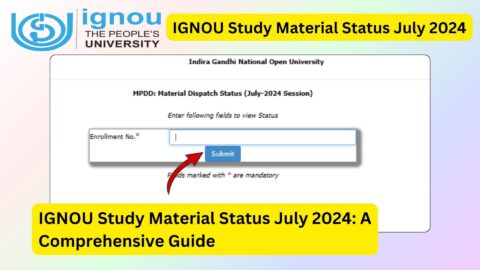How to Get a Credit Card Lawsuit Dismissed: Receiving a credit card lawsuit can be a daunting experience.
Whether you’ve defaulted on payments or are facing a legal action due to a disputed charge, it’s crucial to understand your options and how to effectively address the situation. Here’s a comprehensive guide on how to get a credit card lawsuit dismissed.
1. Understand the Lawsuit
Before taking any action, carefully review the lawsuit documents. Ensure you understand the claims being made against you, the amount sought, and the evidence presented. The complaint should detail why the creditor believes you owe them money. Knowing these details helps you formulate a defense.
2. Verify the Creditor’s Claim
Check the validity of the creditor’s claim. Ensure the debt is actually yours and that the creditor has the right to sue you. Confirm the following:
- Debt Verification: Review your records to verify that the debt amount claimed is accurate.
- Ownership: Make sure the creditor or debt collector suing you owns the debt. Sometimes, debts are sold to third parties, and only the original creditor can sue.
- Statute of Limitations: Each state has a statute of limitations for filing a lawsuit on a debt. If the creditor files after this period, you can request dismissal based on this defense.
3. Respond Promptly
When you receive a lawsuit, you typically have a limited time to respond. Missing the deadline can result in a default judgment against you. Respond by filing an answer with the court, where you can contest the claims or present your defense. Include any evidence that supports your case.
4. Prepare a Strong Defense
Craft a compelling defense based on your situation. Common defenses include:
- Lack of Evidence: Argue that the creditor has insufficient evidence to prove the debt is yours or that the amount is correct.
- Payment Proof: If you have already made payments or settled the debt, provide evidence of this.
- Invalid Contract: Challenge the validity of the original contract or terms if applicable.
- Fraud or Identity Theft: If the debt was incurred fraudulently or due to identity theft, present evidence to support your claim.
5. Negotiate a Settlement
Sometimes, negotiating a settlement can be a viable alternative to going to court. Offer to pay a reduced amount or work out a payment plan. Creditors may prefer settling out of court to avoid further legal costs. Ensure that any settlement agreement is documented in writing and approved by the court.
6. Request a Dismissal
If you believe the lawsuit has no merit, you can file a motion to dismiss. This is a formal request to the court to dismiss the case based on legal grounds. Common reasons for dismissal include:
- Lack of Jurisdiction: The court does not have authority over the case.
- Insufficient Service of Process: The creditor did not properly notify you of the lawsuit.
- Failure to State a Claim: The complaint does not provide a valid legal claim for which relief can be granted.
7. Attend the Court Hearing
If the case proceeds to court, attend all hearings and provide your evidence and arguments. Being present in court shows the judge that you are serious about defending yourself. Be prepared to present your case clearly and concisely.
8. Seek Legal Assistance
Consider hiring a lawyer who specializes in credit card lawsuits or consumer protection. An experienced attorney can provide valuable guidance, help prepare your defense, and represent you in court. They can also assist in negotiating settlements or filing motions.
9. Consider Bankruptcy as a Last Resort
If you cannot resolve the debt through other means, bankruptcy may be an option. Bankruptcy can discharge certain types of debt, but it has long-term consequences and should be considered carefully. Consult with a bankruptcy attorney to understand if this is a viable option for your situation.
FAQ for How to Get a Credit Card Lawsuit Dismissed
What should I do if I receive a credit card lawsuit?
If you receive a credit card lawsuit, promptly review the lawsuit documents to understand the claims against you. It’s crucial to respond to the lawsuit by filing an answer with the court within the specified deadline. Consulting with a lawyer who specializes in credit card debt or consumer law is highly recommended to navigate the legal process effectively.
Can I represent myself in a credit card lawsuit?
While you have the right to represent yourself in court, it is generally advisable to seek legal representation. An attorney with experience in handling credit card lawsuits can provide valuable guidance, help you build a strong defense, and increase your chances of a favorable outcome.
What are common defenses against a credit card lawsuit?
Common defenses include proving that the debt is not yours, demonstrating that the creditor did not follow proper legal procedures, challenging the accuracy of the debt amount, or showing that the statute of limitations has expired. Each case is unique, so the best defense will depend on your specific circumstances.
How can I request a dismissal of the lawsuit?
To request a dismissal, you can file a motion to dismiss with the court. This motion argues that the lawsuit should be dismissed for specific legal reasons, such as lack of jurisdiction, improper service, or failure to state a claim. Your attorney can help draft and file this motion.
What is a motion to dismiss and how does it work?
A motion to dismiss is a formal request to the court to dismiss the lawsuit. It is typically based on legal grounds that challenge the validity of the claim. If granted, the court will dismiss the lawsuit without proceeding to trial. It’s important to provide valid legal reasons and evidence to support your motion.
Can I settle the lawsuit before going to court?
Yes, it is often possible to negotiate a settlement with the creditor or collection agency before going to court. A settlement may involve paying a reduced amount or arranging a payment plan. Settling can be beneficial as it may resolve the issue more quickly and avoid a court judgment.
What happens if I don’t respond to the lawsuit?
If you do not respond to the lawsuit, the court may enter a default judgment against you. This means the court will rule in favor of the creditor by default, which could result in wage garnishment, bank account seizure, or other legal actions to collect the debt.
How can I prove that the debt is not valid?
To prove that the debt is not valid, gather evidence such as payment records, correspondence with the creditor, or documentation showing that the debt has been paid or settled. Disputing the validity of the debt often requires presenting clear and convincing evidence in court.
What should I expect during the court proceedings?
During court proceedings, you will have the opportunity to present your case, provide evidence, and argue your defense. The creditor will also present their case. The judge will review the evidence and arguments before making a decision. It’s important to be prepared and organized for this process.
How can I avoid future credit card lawsuits?
To avoid future credit card lawsuits, manage your credit responsibly by paying your bills on time, keeping your credit card balances low, and communicating with creditors if you are facing financial difficulties. Seeking financial counseling or legal advice can also help you manage debt effectively.
Conclusion
Facing a credit card lawsuit can be stressful, but understanding your rights and options is crucial for effectively managing the situation. By carefully reviewing the lawsuit, preparing a strong defense, and considering legal assistance, you can increase your chances of having the lawsuit dismissed or resolved favorably. Act promptly and take informed steps to protect your financial well-being.
For more information and assistance, consult with legal professionals or consumer advocacy organizations.











